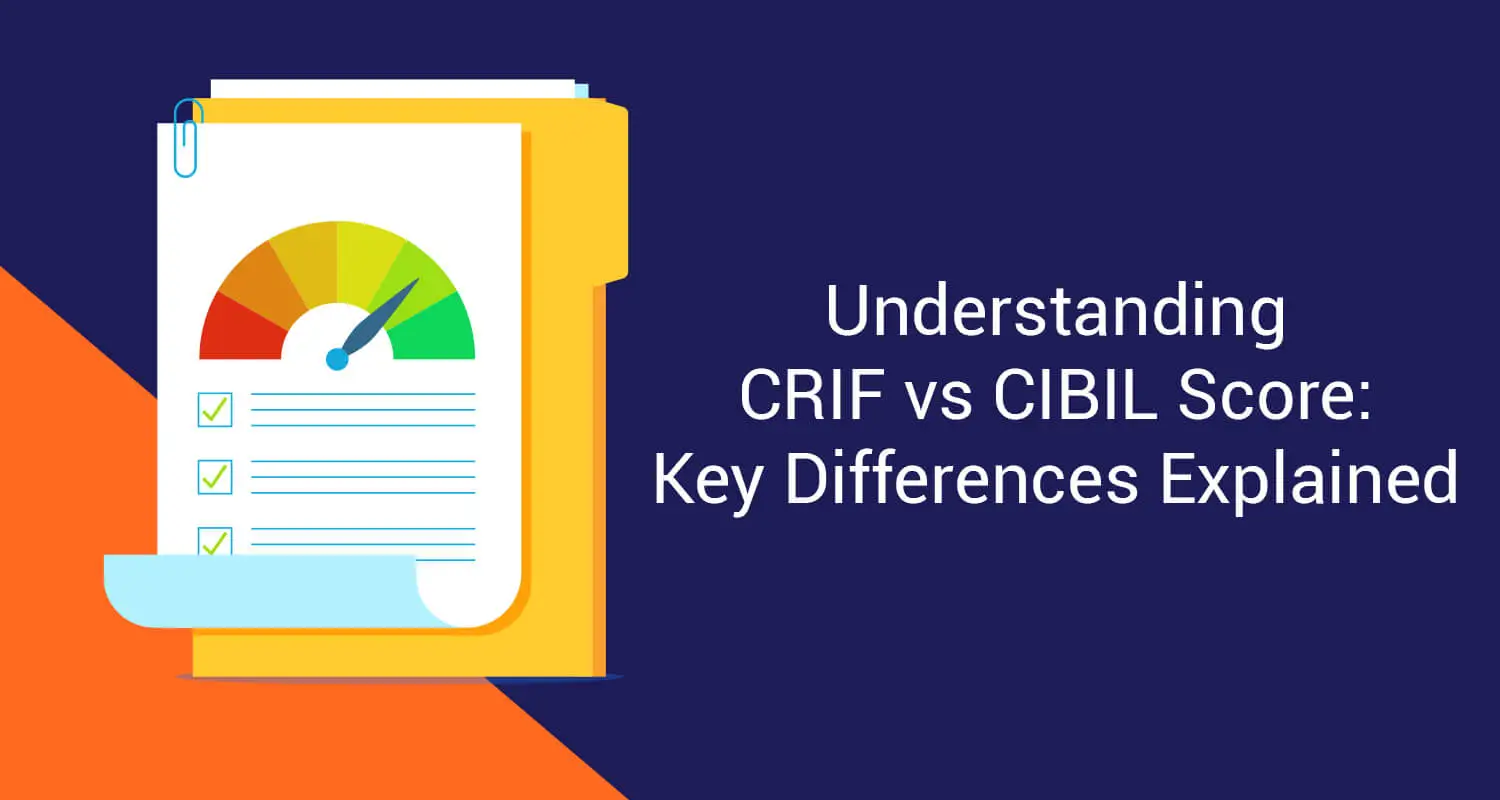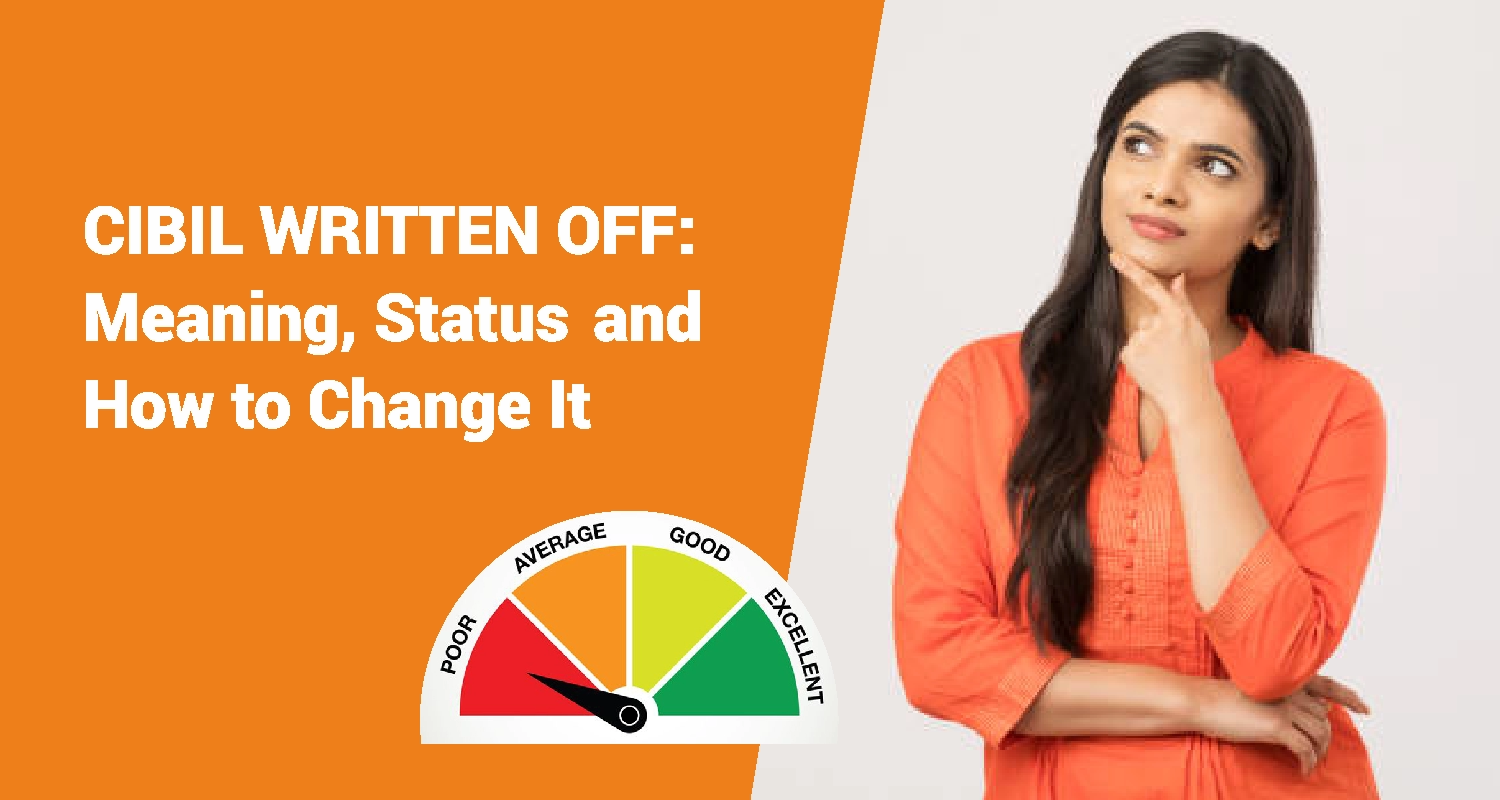CRIF VS CIBIL : 8 Key Differences You Need To Know

When you need a loan or want to apply for credit cards, banks and lenders look at your creditworthiness. They want to know whether you can repay the loan once you take their money. For this reason there are certain authorized credit bureaus who maintain a credit score for every individual. This credit score is based on the individual's past repayment track record. Two such well-known bureaus are CRIF (Centre for Research in International Finance) and CIBIL (Credit Information Bureau (India) Limited).
However, there is a difference in how both these agencies maintain their scores. Let’s understand each of these models or processes.
What are CRIF and CIBIL Scores?
Before we get into the differences between these two scores, it is important to understand how these two scores are calculated.CIBIL Credit Score
CIBIL has the distinction of being the oldest credit bureau in India. Beginning operations in 2000, it collected and managed credit information for individuals based on their repayment history. CIBIL maintained a score from 300 to 900 for each person to reflect their creditworthiness. So if you had a high score closer to 900, your creditworthiness was high and you could easily get a loan or credit card because your past track record was good. However, if your score was closer to 300, then your track record was considered bad, and banks and lenders would hesitate or refuse to give you a loan or credit card.CRIF Credit Score Meaning
CRIF High Mark or CRIF score is a credit information and risk management company established in 2007, much after CIBIL. Similar to CIBIL, however, it generates credit scores ranging from 300 to 850. Lenders use these scores to find out about borrowers' creditworthiness. Just as with a CIBIL score, a higher CRIF High Mark score increases the chances of loan approval and attractive interest rates. A lower CRIF High Mark means you will find it difficult to avail of any finance because of your poor credit history.Crif and CIBIL Difference
Now, let's delineate the differences between CRIF and CIBIL scores across various parameters:Ownership and Establishment
CIBIL, established in 2000 as a collaborative effort between the Indian Banks' Association, leading banks, and financial institutions, has since transformed into TransUnion CIBIL. Over the years, it has become a pivotal institution in India's financial landscape, crucial in assessing individuals' creditworthiness. On the other hand, CRIF emerged in 2007 as a joint venture between CRIF, a reputable Italian company with extensive expertise in credit information, and several prominent Indian financial institutions. Since its inception, CRIF has aimed to provide comprehensive credit solutions tailored to the Indian market's needs.Score Range
The score range offered by CIBIL spans from 300 to 900, encompassing a wide spectrum of creditworthiness levels. This range allows lenders to gauge applicants' creditworthiness effectively and make informed lending decisions. CRIF, on the other hand, typically provides scores ranging from 300 to 850, offering a similar but slightly narrower scope for assessing credit profiles.Credit Data Sources
CIBIL primarily draws its credit data from an extensive network of banks and financial institutions across India. With partnerships established with over 2,400 lenders, CIBIL accesses a diverse pool of credit information, ensuring comprehensive credit reporting. In contrast, CRIF adopts a more holistic approach by sourcing credit information from various entities, including banks, non-banking financial companies (NBFCs), and microfinance institutions. This broad data collection strategy enables CRIF to provide comprehensive credit insights, encompassing diverse segments of the population.Credit Report Format
CIBIL is renowned for its comprehensive credit reports, offering detailed insights into individuals' credit histories. These reports provide lenders with a comprehensive overview of an applicant's credit behaviour, aiding in risk assessment and lending decisions. Conversely, CRIF distinguishes itself by offering user-friendly credit reports that are easily interpretable by individuals. Despite the complexity of credit data, CRIF's reports are designed to be accessible, ensuring that individuals can understand and utilize their credit information effectively.Credit Score Factors
CIBIL's scoring model considers various factors, including payment history, credit utilization, credit mix, and recent credit behavior, to generate credit scores. These factors provide a holistic assessment of an individual's creditworthiness, enabling lenders to evaluate risk accurately. Similarly, CRIF's scoring algorithm factors in repayment history, credit utilization, and the length of credit history, among other variables, to generate credit scores. By analyzing these critical factors, CRIF aims to provide lenders with comprehensive insights into applicants' credit profiles, facilitating prudent lending decisions.Get Gold Loan at the comfort of your home
Apply NowMarket Presence
CIBIL has established itself as a leading credit bureau in India, enjoying widespread recognition and trust among lenders and financial institutions nationwide. Its extensive network and robust credit reporting infrastructure make it a preferred choice for credit assessment purposes. Meanwhile, CRIF has steadily expanded its presence in the Indian credit industry, offering tailored credit solutions to businesses and lenders across the country. Despite being a relatively newer entrant, CRIF's commitment to innovation and excellence has earned it recognition as a reputable credit bureau in the Indian market.Licensing
CIBIL operates under the supervision of the Reserve Bank of India (RBI) and is owned by TransUnion, a private corporation. Its compliance with regulatory standards and industry best practices ensures the integrity and reliability of its credit reporting services. Similarly, CRIF operates under the regulatory oversight of the RBI, adhering to stringent guidelines to safeguard the confidentiality and accuracy of credit data. As a licensed credit bureau, CRIF upholds the highest standards of data protection and privacy, ensuring the trust and confidence of its stakeholders.| Parameters | CRIF Highmark Score | CIBIL Credit Score |
|---|---|---|
| Full Form | CRIF High Mark Credit Information Services Pvt. Ltd. | Credit Information Bureau India Limited |
| Acceptable Score Range | 300-900 (Excellent: 750) | 300-900 (Good: Above 750) |
| Ownership and Establishment | Joint venture between CRIF (Italian) and Indian financial institutions, established in 2007 | Owned by the Indian Banks' Association (IBA) and major financial institutions, established in 2000 |
| Credit Score Range | Up to 850 | 300-900 |
| Credit Data Sources | Banks, NBFCs, microfinance institutions | Banks, financial institutions (partnerships with over 2,400 lenders) |
| Credit Report Format | User-friendly format | Comprehensive with detailed credit histories |
| Credit Score Factors | Repayment history, credit utilization, length of credit history | Payment history, credit utilization, credit mix, recent credit behavior |
| Market Presence | Nationwide | Nationwide |
| Licensing | Directly under RBI control | Supervised by RBI but controlled by TransUnion, a private corporation |
While both CRIF and CIBIL serve the same fundamental purpose of assessing creditworthiness, they differ in ownership, score range, data sources, report format, score factors, market presence, and licensing. Understanding these distinctions empowers individuals to navigate the credit landscape more effectively and make informed financial decisions. Whether it's applying for loans, credit cards, or general insurance, having a good understanding of CRIF vs CIBIL scores is essential for securing favorable terms and enhancing financial well-being.
Sapna aapka. Business Loan Humara.
Apply NowDisclaimer: The information contained in this post is for general information purposes only. IIFL Finance Limited (including its associates and affiliates) ("the Company") assumes no liability or responsibility for any errors or omissions in the contents of this post and under no circumstances shall the Company be liable for any damage, loss, injury or disappointment etc. suffered by any reader. All information in this post is provided "as is", with no guarantee of completeness, accuracy, timeliness or of the results etc. obtained from the use of this information, and without warranty of any kind, express or implied, including, but not limited to warranties of performance, merchantability and fitness for a particular purpose. Given the changing nature of laws, rules and regulations, there may be delays, omissions or inaccuracies in the information contained in this post. The information on this post is provided with the understanding that the Company is not herein engaged in rendering legal, accounting, tax, or other professional advice and services. As such, it should not be used as a substitute for consultation with professional accounting, tax, legal or other competent advisers. This post may contain views and opinions which are those of the authors and do not necessarily reflect the official policy or position of any other agency or organization. This post may also contain links to external websites that are not provided or maintained by or in any way affiliated with the Company and the Company does not guarantee the accuracy, relevance, timeliness, or completeness of any information on these external websites. Any/ all (Gold/ Personal/ Business) loan product specifications and information that maybe stated in this post are subject to change from time to time, readers are advised to reach out to the Company for current specifications of the said (Gold/ Personal/ Business) loan.



